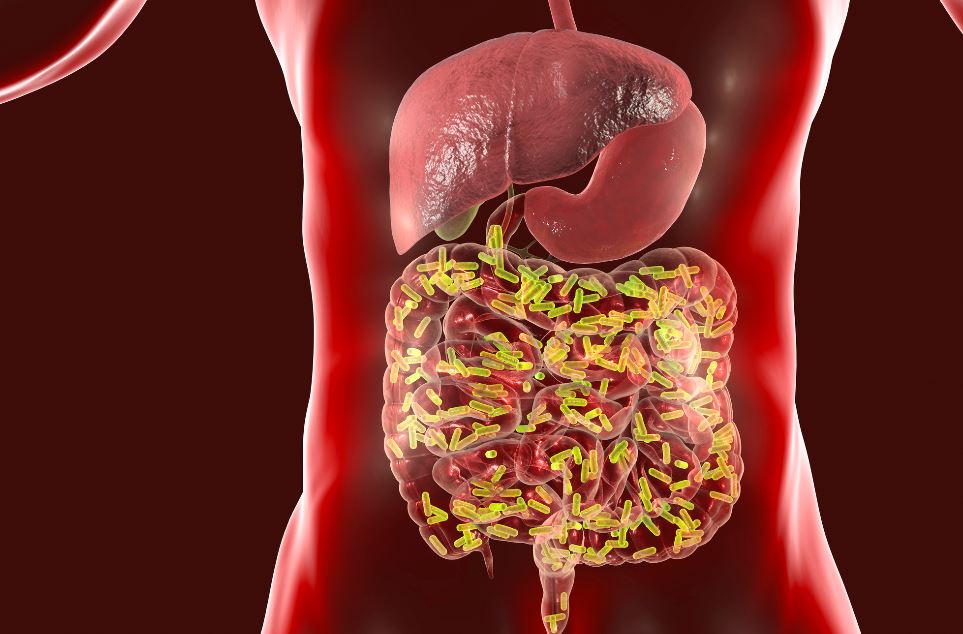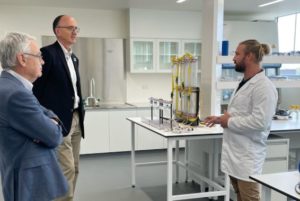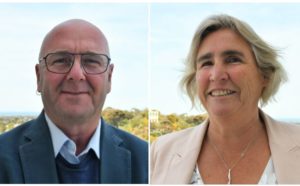
From new antibiotics, cancer treatments to predicting dangerous new viruses, the Flinders Accelerator for Microbiome Exploration (FAME) laboratory is officially open to more research projects.
Led by Matthew Flinders Professor Elizabeth Dinsdale and Professor Robert Edwards, the lab has just unveiled new facilities at the Biology Building, assisted by the University’s ongoing investment in cutting-edge infrastructure.

The FAME lab already has published a series of scientific papers authored by its founding research group, expanding its reach into international and Australian collaborations – including in South Australia with industry, government and other tertiary organisations.
Along with human health solutions, the lab’s weekly and monthly bioinformatics workshops and outreach meetings are also targeting emerging research in environmental microbial research.
Launching the research facility, Deputy Vice-Chancellor (Research) Professor Robert Saint says the advances in DNA extraction and sequencing technologies are breathtaking.
“Biological and genetic/genomic analysis, including of environmental material, will continue to be extraordinarily important and significant,” says Professor Saint, whose PhD studied gene structure in the earliest days of recombinant DNA technology in the late-1970s.

“It allows us to tackle some of the clear and present threats not just to human health but also to the environment, particularly from climate change. These state-of-the-art facilities will enable new discoveries, concepts and understandings that we can’t even imagine at the moment – that’s the nature and the excitement of research.”
Professor Saint praised the efforts of the new research team, including “wonderful higher degree by research students who … really drive the research, and allow us to go out to the public and politicians and say ‘look at what we’re doing – we’re really making a difference’.”
“Microbiome research is an area of increasing importance, due to the growing need to rapidly test the effectiveness of various therapies to human health, including how individual microbiome interacts with various antibiotics, vaccines and the effectiveness of cancer treatments,” says College of Science and Engineering Vice President and Executive Dean Professor Alistair Rendell, adding the refurbished lab is already working on developing new methods for the treatment of diseases including fecal microbiome transplants, phage therapies and rehabilitating natural habitats (outside the human body).
“Environmental microbiomes are important to drive biochemical pathways, including the air we breathe,” Professor Rendell says.
New PC2 areas with negative air pressure and BC2 zone for biosecurity containment will make the research possible, with the FAME team is working on – and towards:
• describing Australia’s novel microbes and viruses
• linking microbiomes and host physiology
• exploring the co-evolution of host and microbes using MAGs (metagenomic assembled genomes)
• integrating host and microbial genomes
• advancing microbial modelling, and
• increasing graduate capacity in genomics e.g. teaching DNA sequencing.
“By 2050, it’s possible that bacterial infections could kill more people than any other disease, including COVID-19, due to antibiotic resistance,” says Professor Edwards, pointing to a growing collaboration with Phages Australia to develop a new approach to antibiotic development.
More information about the lab see: Flinders Accelerator for Microbiome Exploration

